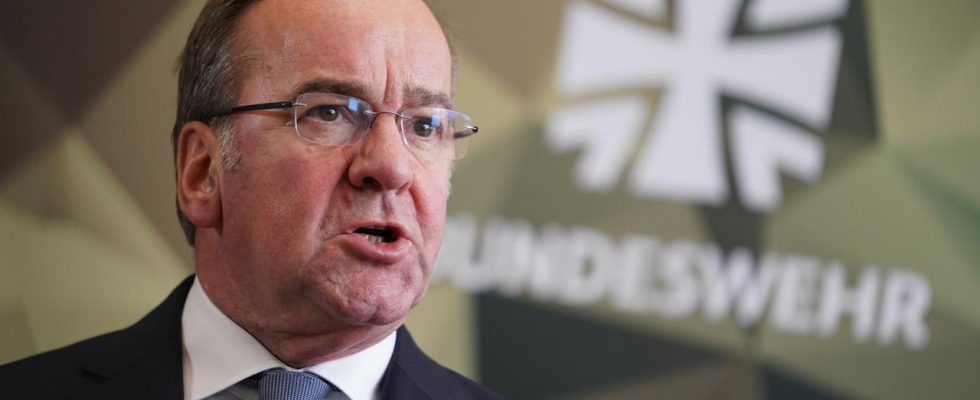Should the Bundeswehr’s special assets be increased? Defense Minister Pistorius is skeptical. Instead, he is pushing for long-term financing. The Bundeswehr must be on “solid financial footing”.
The Bundeswehr’s special assets are worth 100 billion euros. But after former US President Donald Trump’s statements about NATO’s obligation to provide assistance, a debate has broken out as to whether an increase is necessary. Defense Minister Boris Pistorius has now spoken out. “I am happy about any suggestion that helps ensure that defense spending is budgeted sensibly and appropriately,” said the SPD politician to the Germany editorial network. “Another special fund is one option – but not my favorite.”
Instead, the minister advocated that the defense budget be increased in the regular federal budget. “For our security, we need a Bundeswehr that is on solid financial footing in the long term.”
The CDU defense politician Roderich Kiesewetter had previously brought up a significant increase in the 100 billion euro special pot for the Bundeswehr. “It’s completely clear that we need 300 billion instead of 100 billion so that the Bundeswehr can become combat-ready,” he told the “Süddeutsche Zeitung.” The special fund was approved by the Bundestag after Russia’s attack on Ukraine at the suggestion of Chancellor Olaf Scholz.
Pistorius: Inflation eats up part of it special assets on
Pistorius now replied that a special fund anchored in the constitution had the advantage that a certain amount was available for a certain period of time and could be spent on equipment, weapons and ammunition. At the same time, however, he pointed out several disadvantages: on the one hand, inflation would eat up part of the special assets, and on the other hand, the special assets could not be used for maintenance, upkeep, repairs and training.
“For example, if we buy more urgently needed weapons – from self-propelled howitzers to Patriot systems – the long-term repair costs will also increase,” said Pistorius. Operating costs are at least as important as procurement.
The two percent mark should be adhered to
The discussion was triggered by statements from Trump, who wants to run again in the US presidential elections in November. He had said at a campaign rally that he would not protect NATO allies from a Russian invasion if they did not spend enough on their own defense.
The declared goal of NATO countries is to spend at least two percent of their gross domestic product on defense spending every year. Germany has been below this in recent years. According to Scholz, this year “and forever,” the country will maintain the two percent mark.
Germany as the most important Ukraine supporter in Europe
The fact that the government is investing more in armaments is also crucial for Ukraine. Germany is the largest military donor to Kiev in Europe and is second only to the United States in the world. According to the Kiel Institute for the World Economy, Germany has so far provided more than 17 billion euros in military aid to Ukraine.
Nevertheless, Ukraine is coming under increasing pressure. One of the reasons: there is a lack of ammunition. Delivery times are currently up to 28 months. New factories are intended to change this, such as the plant of the arms company Rheinmetall. At the weekend, Scholz laid the foundation stone for the facility in the Lüneburg Heath. 50,000 artillery shells are expected to leave the factory in 2025, 100,000 the following year and later 200,000 per year.
It primarily produces 155-millimeter artillery shells, as well as explosives and components for rocket artillery. Rheinmetall plans to invest a total of 300 million euros in the new plant and 500 jobs will be created.
Lothar Lenz, ARD Berlin, tagesschau, February 14, 2024 6:21 a.m

